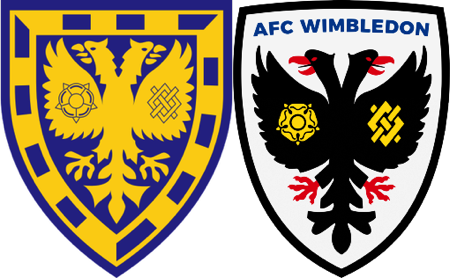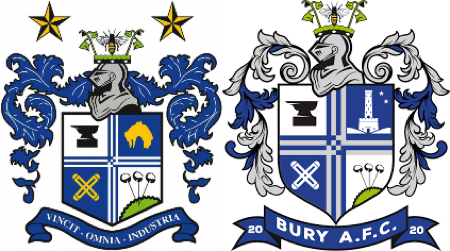It is one of the great tragedies of modern football that so many proud clubs are struggling to survive financially. The last strains of Auld Lang Syne had barely rung out to signal 2024 when it was revealed Rochdale AFC, founded more than a century ago, could become extinct unless £2 million of investment is miraculously found.
It puts The Dale at risk of suffering a similar fate as Wimbledon FC, Chester City, Hereford United, Bury and many more – all storied English clubs that went into liquidation and extinction due to, typically, irrevocable financial peril. It’s not just an English problem either, with historic clubs from Austria to the Ukraine essentially going out of business.
Often, the finger of blame can be pointed at mis-management by an owner or group of directors, but it would be equally true to suggest that football is an expensive sport – particularly if you want to be competitive and win cups and league titles.
When a club goes into liquidation, there is a human cost beyond the spreadsheets and the financial accounts. Players and staff lose their jobs, while in many cases a local community loses its hub – a place for thousands of people to forget about the stresses of life for 90 minutes and enjoy the agony and ecstasy that only live sport can provide.
The good news is that all is not always lost when a club suffers extinction. Individuals behind the scenes will want the name of the beloved to live on, and that’s given rise to a phenomenon in football that speaks to the true essence of the beautiful game: phoenix clubs.
What Is a Phoenix Club?

When a football club goes bust, it has failed from a business perspective – but much of its sporting worth remains. There’s already a customer base (i.e. the fans), there is likely to be a group of employees and a hardy band of volunteers ready to roll their sleeves up and perhaps a footballing infrastructure, be it a stadium, training ground and other property, that belongs to the embers of the club.
Perhaps it is no surprise that more and more phoenix clubs are rising from the flames. This is where a new entity effectively takes the place of the old, albeit maybe playing at a different home ground, with a different badge and set of players, and at a lower level of the football pyramid.
For legal reasons, a phoenix club will likely have a slightly different name too, as evidenced by:
- Chester City FC -> Chester FC
- Macclesfield Town -> Macclesfield FC
- Bury FC -> Bury AFC
- Halifax Town AFC -> FC Halifax Town
Although there are clear and obvious differences between the phoenix club and its successor, typically the same level of fanbase will remain – allowing the new entity to carry on with fresh energy and vigour. There’s another sort of phoenix club – one set up by supporters of an existing team as a protest. For example, frustrated fans of Manchester United created FC United of Manchester in 2005 in opposition to the former’s sale to American businessman, Malcolm Glazer.
However, the true definition of a phoenix club – in line with the imagery of the mythical being they are named after – is one that has risen from the ashes of a now-defunct predecessor.
What Are the Rules on Phoenix Clubs?

Very rarely – in fact, it is yet to happen in English football – does the phoenix club simply take the place of the pre-existing outfit and continue on as usual. The phoenix has to be registered as a new club with the Football Association, a process that will almost certainly mean that they have to start life much lower down the pyramid than their former entity.
For Bury AFC, that meant starting out in the tenth tier of the English game – much lower than the fourth-tier, professional standing of Bury FC. Curiously, Bury AFC – a football club with no permanent home – and Bury FC, an entity without a team that owned the Gigg Lane stadium, then merged in time for the 2023/24 season, with the FA allowing the new club to be called Bury FC. Alas, they had to remain at the ninth-tier level of Bury AFC.
Ultimately, it’s the Football Association that decides at what level the phoenix club will enter the league structure at, although usually it’s at an appropriate geographical level – Macclesfield FC, for instance, were installed in the North West Counties Premier Division, which is reflective of their Cheshire location.
Who Is the Most Successful Phoenix Club in Football?
Fans of British comedy will no doubt claim that Peter Kay’s Phoenix Club in Bolton is the most successful of them all, but as far as football is concerned is surely AFC Wimbledon.
https://t.co/tGIYdZxTON pic.twitter.com/jQu0C9CalR
— Max and Paddy Quotes (@maxandpaddyline) February 20, 2024
It is true that the likes of Accrington Stanley FC and Newport County AFC may have gone on to play at a higher level or in glamour FA Cup ties live on TV, but they have been around as phoenixes (if that is the correct pluralisation) for more than 30 years.
AFC Wimbledon, meanwhile, was formed in 2002 as a result of the bizarre decision to rebrand Wimbledon FC as MK Dons, forcing them to up sticks to Milton Keynes some 60-odd miles away. Fans of Wimbledon quite rightly decided that the new entity did not represent their beloved club from a historic or geographical standpoint, so they joined forces to set up AFC Wimbledon as a phoenix instead.
They were forced to start in the ninth-tier Combined Counties League, but after six promotions in little over a decade, the Dons found themselves back in League One – the third-tier of the English football pyramid. They went from playing at the shared Kingsmeadow ground to building their own facility called Plough Lane – the same name as the venue that Wimbledon FC played at so successfully for decades.
Wimbledon FC, known for a time as the ‘Crazy Gang’ due to the antics of madcap players like Vinnie Jones and John Fashanu, built a stunning legacy as Premier League participants and FA Cup winners. But after falling upon hard times financially, it was decided that the switch to Milton Keynes was absolutely necessary.
And, so Wimbledon FC died that day, but the Crazy Gang spirit lives on in AFC Wimbledon, who – much to the delight of hardened football fans around the world – defeated MK Dons in their second meeting in March 2017. The rivalry between the two is still considered to be one of the fiercest in the English game. Hopefully the need for phoenix clubs will die out in the future, as the owners of existing outfits become much financially savvy and sensible. But don’t count on it in an era when greed is king.

